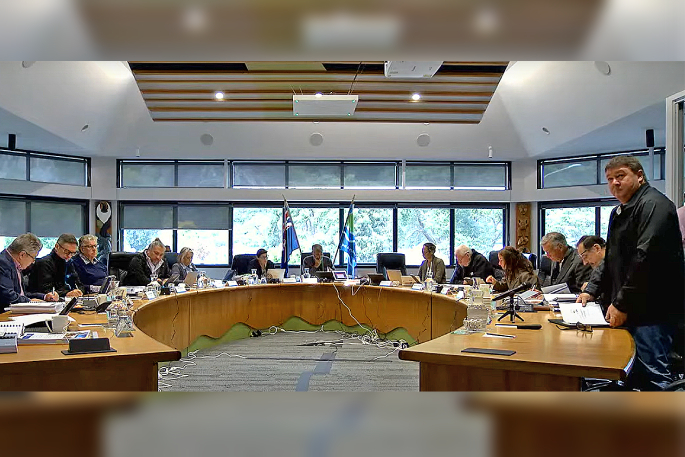A harbourmaster's email raises questions about the "minimal" consultation carried out when the Bay of Plenty Regional Council decided to axe a safety bar calling service for Whakatāne boaties, a club president says.
Whakatāne Sportfishing Club president Heyden Johnston asked councillors to rethink the discontinuation of the service when he spoke at the Long-term Plan's hearing on Tuesday.
He presented the council with an email he obtained through an Official Information Act request.
Referring to a meeting with Coastguard Whakatāne, Mr Peters states in the email: “Meeting went fairly normal and at the end I slipped in the part that we were looking to review and discontinue the bar calling practice now. No reaction! ... One box ticked off. Meeting with WDC next year Jan and will inform them then [sic].”
Mr Johnston said the email showed consultation was “clearly designed to be minimal”.
However, the council responded by saying the decision was not taken lightly and it was based on safety concerns.
The bar calling service involved a maritime safety officer or contractor reviewing river bar conditions in Whakatāne and giving advice to boaties as to whether the bar crossing was workable, workable with caution or closed.
The advisory service had been running for over 35 years through various organisations, most recently the regional council.
Bay of Plenty harbourmaster Jon Jon Peters announced it would be discontinued earlier this year.
At the time, he said the boat's skipper was best placed to make the decision to cross the bar due to many variables, including tide, time of day, skipper's experience, the size and type of vessel, and the increased use of other technologies.
 Heyden Johnston, far right, speaks to Bay of Plenty Regional Council at a hearing in Whakatāne.
Heyden Johnston, far right, speaks to Bay of Plenty Regional Council at a hearing in Whakatāne.
Mr Johnston said the advisory was just one tool in the toolbox and didn’t prevent the skipper using their own judgement.
Using the analogy of driving over the Kaimai Range, he likened removing the advisory with doing away with variable speed signs.
“If we decided it was better to have a webcam and a weather report, and those were the two tools that you got to use to decide how fast you drive, that’s ridiculous, right?”
He said he had been told that one of the main reasons for the discontinuation was potential legal repercussions if someone was injured on the bar.
However, he said he believed it was the skipper’s legal responsibility to ensure the safety of themselves and their crew before crossing any river bar.
“The value that river bar has for this community is immense. If we see an increase in incidences on that bar because we have removed a perfectly good service, then how is that going to impact us financially? People won’t want to use the bar, so people won’t come here.”
He said a fishing competition held shortly after the advisory was stopped saw four boats nearly capsize while crossing the bar.
“Unfortunately ... there was a drive to remove the service without consultation and generating information that suited the rhetoric at the time.”
Mr Johnston said the $50,000 cost for the regional council to maintain the service was “a very small cost ... to save lives and give an advisory that is used by many".
Asked to respond to Mr Johnston’s comments, Bay of Plenty Regional Council said stopping the bar calling service was a decision that was not taken lightly and identified safety concerns were the primary reason to cease the calling of the bar.
“Bay of Plenty Regional Council appreciates Mr Johnston taking the opportunity to talk to his submission at the Long Term Plan (LTP) Hearing, and as part of the LTP deliberations process, elected members and staff will take into consideration the comments made.”
LDR is local body journalism co-funded by RNZ and NZ On Air.




0 comments
Leave a Comment
You must be logged in to make a comment.